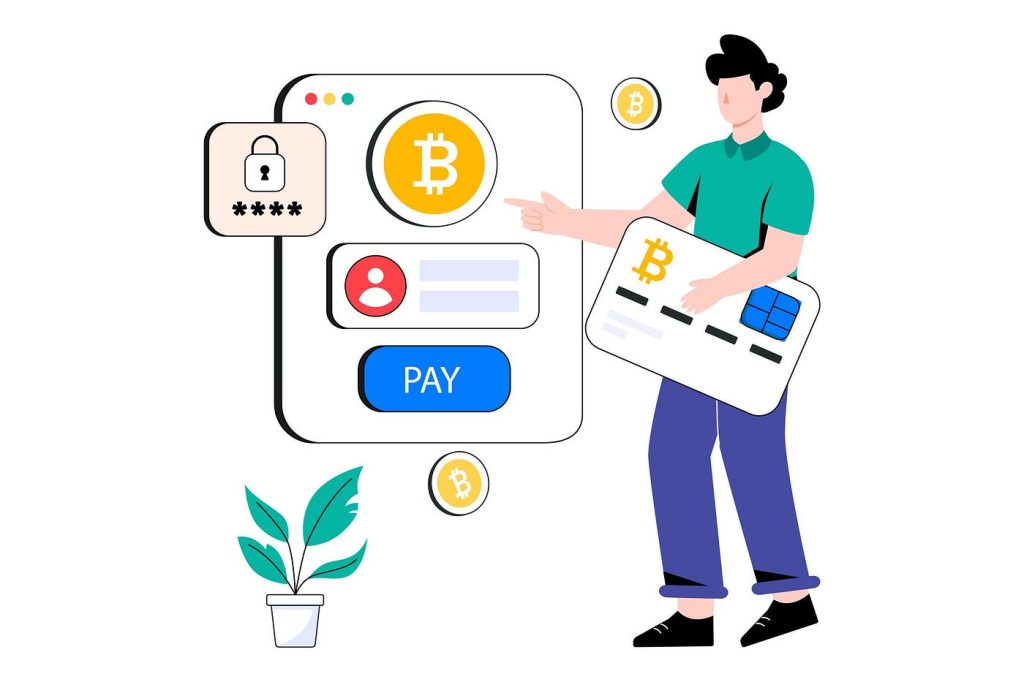AUTHOOR: BILLIE EILLISH
DATE : 23/08/24
Introduction
As the digital economy[1] continues to evolve, businesses in India are increasingly looking for innovative ways to streamline transactions and enhance customer experiences. Crypto Payment[2] Integration Solutions in India is at the forefront of this transformation, offering a modern alternative to traditional financial systems[3]. This article delves into the benefits, challenges, and steps involved in integrating cryptocurrency payments into business operations[4] in India.
The Rise of Cryptocurrency in India

India’s interest in cryptocurrency[5] has surged in recent years, driven by the growing acceptance of digital currencies globally and a tech-savvy younger generation. Cryptocurrencies such as Bitcoin, Ethereum, and newer altcoins are becoming more popular not just as investment assets but as viable payment options. With advancements in blockchain technology and increasing regulatory clarity, businesses are exploring ways to incorporate these digital assets into their payment systems.
Why integrate cryptocurrency payments?
1. Reduced Transaction Fees
One of the most appealing benefits of crypto payment integration solutions in India is the potential for lower transaction fees. Traditional payment processors often charge high fees for credit card transactions and cross-border payments. Cryptocurrencies can reduce these costs significantly, making them an attractive option for businesses looking to maximize their profit margins.
2. Faster Transactions
Crypto Payment Integration Solutions in India can be processed much faster than traditional banking methods, especially for cross-border payments. While international wire transfers might take several days, cryptocurrency transactions can be completed in minutes, providing a faster and more efficient payment method.
3. Enhanced Security
Blockchain technology, the backbone of cryptocurrencies, offers a high level of security. Transactions are encrypted and recorded on a public ledger, making them tamper-proof and reducing the risk of fraud. This level of security is increasingly important in a digital economy where data breaches and fraud are common concerns.
4. Broader Market Reach
By accepting cryptocurrencies, businesses can attract a new segment of tech-savvy consumers and investors who prefer using digital assets. This can be particularly advantageous for e-commerce platforms looking to expand their global reach and tap into markets where traditional banking services may be limited.
Challenges in Cryptocurrency Payment Integration
Despite the advantages, integrating cryptocurrency payments into business operations comes with its own set of challenges:
1. Regulatory Uncertainty
India’s regulatory landscape for cryptocurrencies has been evolving, and businesses must navigate a complex and sometimes ambiguous legal environment. The Reserve Bank of India (RBI) and other regulatory bodies have introduced guidelines to govern cryptocurrency transactions, but there remains a degree of uncertainty regarding future regulations.
2. Volatility
Cryptocurrencies[1] are known for their price volatility. The value of a cryptocurrency can fluctuate significantly within a short period of time, which can pose risks for businesses that accept them as payment. This volatility can affect pricing strategies and also financial planning.
3. Technical Integration
Integrating cryptocurrency payments into existing systems requires technical expertise and robust infrastructure. Businesses need to ensure that their payment gateways[2], accounting systems, and security protocols are compatible with cryptocurrency transactions.
4. Customer Education
For many customers, cryptocurrency is still a relatively new concept. Businesses may need to invest in educating their customers about how to use cryptocurrencies[3] for payments, which can involve additional resources and time.
Steps for Cryptocurrency Payment Integration

Integrating cryptocurrency payments into your business involves several key steps:
1. Choose the Right Cryptocurrencies
Select the cryptocurrencies you want to accept based on factors such as popularity, liquidity, and transaction fees. Bitcoin and Ethereum[4] are among the most widely accepted, but you may also consider other altcoins that are relevant to your target market.
2. Select a Payment Gateway
Choose a cryptocurrency payment gateway that supports the cryptocurrencies you wish to accept. Payment gateways act as intermediaries, facilitating the conversion of cryptocurrencies into fiat currency and ensuring secure transactions. Some popular payment gateways include Coinbase Commerce, BitPay, and CoinGate.
3. Integrate the Payment Gateway
Work with your technical team or a third-party developer to integrate the chosen payment gateway into your website or point-of-sale system. Ensure that the integration is seamless and that all security protocols are in place to protect against fraud and data breaches.
4. Update Your Accounting Systems
Modify your accounting and financial reporting systems to handle cryptocurrency transactions. This includes tracking payments, managing exchange rates, and ensuring compliance with tax regulations. Some accounting software platforms offer integrations specifically for cryptocurrency transactions[5].
5. Test the System
Before going live, thoroughly test the cryptocurrency payment system to ensure that it works as expected. Conduct test transactions to verify that payments are processed correctly and that there are no issues with the integration.
6. Educate Your Team and Customers
Provide training for your staff on how to handle cryptocurrency payments and address any questions or concerns they may have. Additionally, create educational resources for your customers to help them understand how to make payments using cryptocurrency.
7. Monitor and Optimize
Once the system is live, continuously monitor its performance and make adjustments as needed. Stay updated on regulatory changes and market trends to ensure that your cryptocurrency payment integration remains effective and compliant.
Conclusion
Cryptocurrency payment integration offers a range of benefits for businesses in India, from reduced transaction fees to enhanced security and faster processing times. However, it also presents challenges, including regulatory uncertainty and technical complexities. By carefully selecting the right cryptocurrencies and payment gateways and integrating them effectively into your systems, businesses can harness the advantages of cryptocurrency payments and position themselves at the cutting edge of the digital economy.
FAQ:
1. What is cryptocurrency payment integration?
Cryptocurrency payment integration involves incorporating digital currencies like Bitcoin, Ethereum, or other altcoins into a business’s payment system. This allows customers to make purchases using cryptocurrencies and businesses to accept these digital assets as payment. Integration typically involves using a payment gateway that converts cryptocurrency payments into fiat currency or processes them directly.
2. Why should my business consider accepting cryptocurrency payments?
Accepting cryptocurrency payments can offer several benefits, including reduced transaction fees, faster transaction times, enhanced security, and the potential to reach a broader, tech-savvy customer base. Cryptocurrencies can also simplify cross-border transactions and attract new customer segments who prefer using digital assets.
3. What are the main challenges of integrating cryptocurrency payments?
Key challenges include navigating regulatory uncertainty, dealing with the inherent volatility of cryptocurrencies, ensuring technical integration with existing systems, and educating customers about cryptocurrency payments. Businesses must also manage the complexities of accounting for cryptocurrency transactions.
4. How do I choose the right cryptocurrency payment gateway?
When selecting a cryptocurrency payment gateway, consider factors such as the range of supported cryptocurrencies, transaction fees, security features, and ease of integration with your existing systems. Popular gateways include Coinbase Commerce, BitPay, and CoinGate. Evaluate their features and choose one that aligns with your business needs.
5. How can I handle cryptocurrency volatility?
To manage cryptocurrency volatility, consider using payment gateways that offer instant conversion of cryptocurrency payments into fiat currency. This minimizes exposure to price fluctuations. Additionally, regularly review and adjust your pricing strategy to account for any changes in cryptocurrency value.

